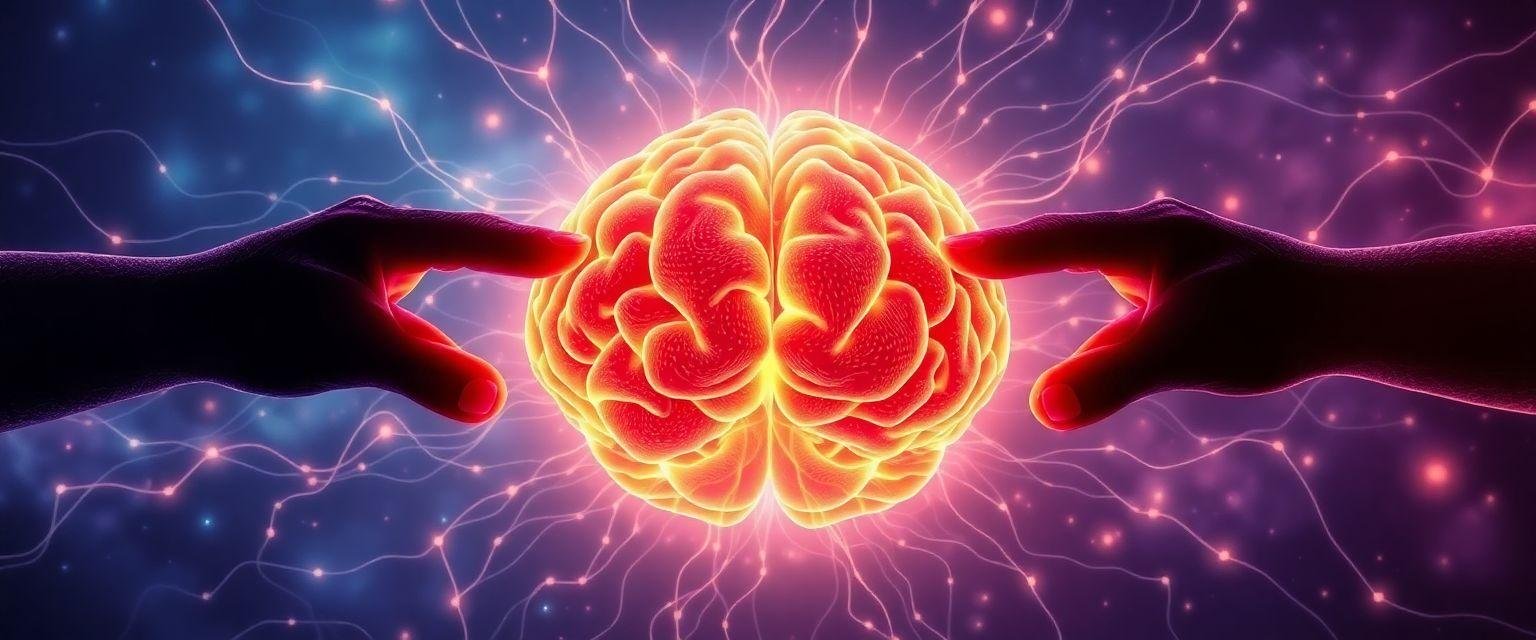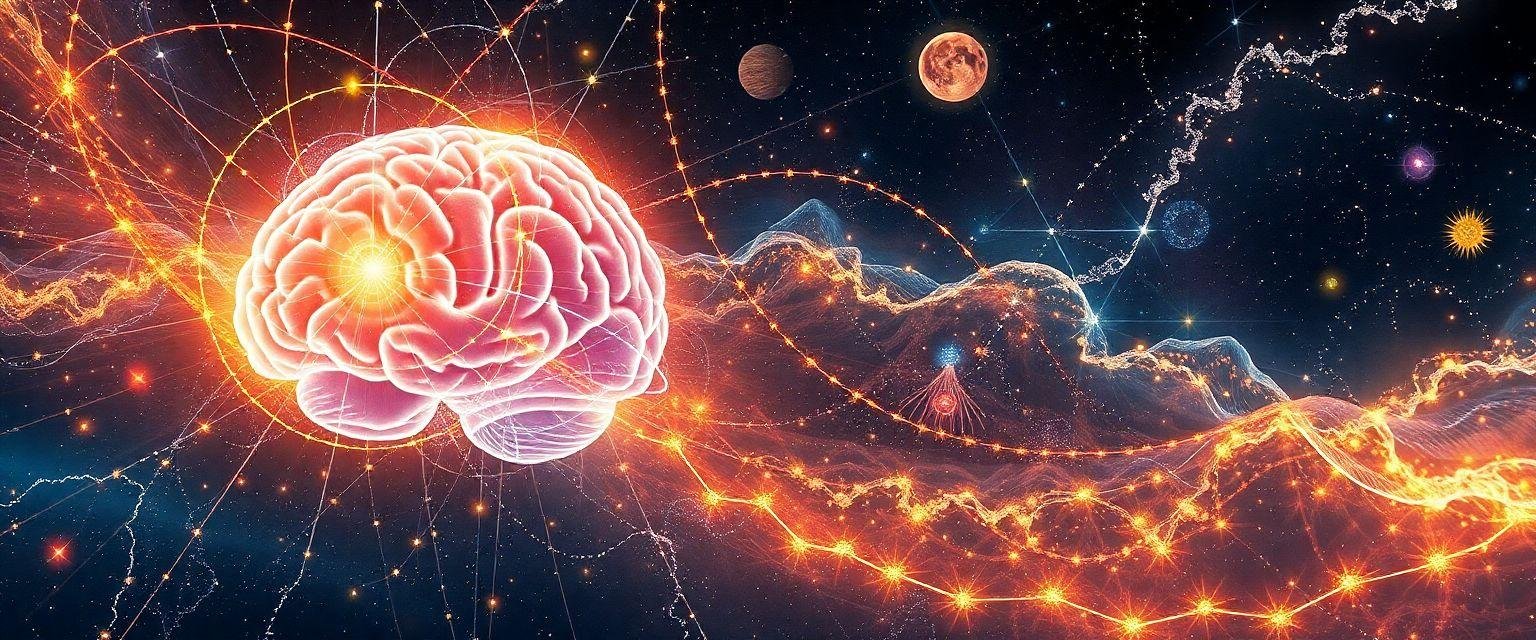How Our Brain Reacts to Thoughts
Have you ever paused to wonder how a mere thought can trigger a cascade of reactions in our brains? As you read this, your brain is processing words, forming images, and possibly even sparking emotions. But how does this happen? What is the interplay between our brain and our thoughts? This exploration will delve into the mechanics and mysteries of how our brain reacts to thoughts, challenging our understanding of the mind, the body, the universe, the soul, and the spirit.
Understanding Brain Reactions
Discover how different aspects of our brain respond to thoughts and their implications on our existence.
– The brain processes thoughts by integrating cognitive functions, influencing both mental and physical states.
– Emotional responses are connected to thought patterns, illustrating the mind-body relationship in our daily experiences.
– Exploring the link between brain activity and concepts like the soul and spirit can provide insights into our understanding of consciousness and the universe.
The Brain and the Mind
The brain, a three-pound organ that is arguably the most complex in the universe, is where our thoughts originate. But is the brain the same as the mind? Not quite. The mind is an abstract concept, representing the realm of thoughts, consciousness, and emotions, while the brain is a physical entity. The interaction between the two is both fascinating and complex.

Neuroscientists have long studied how thoughts, essentially electrical impulses, affect the brain’s structure and function. For instance, when you learn something new, your brain changes. This phenomenon, known as neuroplasticity, illustrates how our brain adapts and reorganizes itself. A study published in the journal Nature Reviews Neuroscience found that engaging in complex tasks can actually increase the density of gray matter in the brain.
Insider Tip: “Think of your brain as a muscle. The more you challenge it with new thoughts and experiences, the stronger and more dynamic it becomes,” says Dr. Emily Norton, a cognitive neuroscientist.
However, the mind’s power doesn’t end there. It’s been found that just thinking about an action can activate the same brain regions as actually performing the action. This is evident in athletes who use visualization techniques to improve their performance. But is there a limit to how much our thoughts can shape our physical reality?
For further reading, check out this Nature Reviews Neuroscience article on neuroplasticity.
The Brain and the Body
How do thoughts influence our physical well-being? The brain-body connection is a powerful one. Consider the placebo effect, where belief in a treatment’s efficacy triggers a real physiological response. This phenomenon underscores the profound impact of our thoughts on our physical health.

Research has shown that stress, a product of our thoughts and emotions, can lead to tangible health issues such as heart disease and weakened immune function. Conversely, positive thinking has been linked to better health outcomes. A study by the American Journal of Epidemiology found that individuals with a positive outlook on life had a lower risk of dying from heart disease than their pessimistic counterparts.
Insider Tip: “Your body listens to your thoughts. Practicing mindfulness and stress reduction can lead to significant health benefits,” suggests Dr. Sarah Collins, a clinical psychologist.
But how exactly does this brain-body dialogue occur? Our thoughts can trigger the release of neurotransmitters and hormones, which in turn affect bodily functions. For instance, anxiety can increase adrenaline, leading to a faster heartbeat and heightened senses. But are we truly in control of this interplay, or are we merely passengers on a biochemical rollercoaster?
For more insights, explore the American Journal of Epidemiology study on positive thinking and health outcomes.
The Brain and the Universe
Could our brains be connected to the universe in ways we can’t yet fully comprehend? The concept might sound like science fiction, but emerging theories in physics and neuroscience suggest otherwise. Some scientists propose that consciousness could be a fundamental aspect of the universe, akin to gravity or electromagnetism.

The idea of a universal consciousness is not new. Quantum physicists like Dr. Roger Penrose have speculated that consciousness may arise from quantum processes within the brain. This hypothesis is tantalizing, as it suggests our thoughts could, in some way, be linked to the fabric of reality itself.
Insider Tip: “While it’s still highly speculative, the idea that our consciousness might be woven into the universe’s framework is an exciting frontier of research,” notes Dr. Alan Harrington, a theoretical physicist.
This leads us to ponder: if our thoughts are indeed connected to the universe, what impact can they have beyond our bodies? Could our collective consciousness shape the cosmos? While definitive answers remain elusive, the possibility opens a realm of exciting questions and potentialities.
For further exploration, read about Dr. Penrose’s theories on consciousness and quantum mechanics in this scientific review.
The Brain and the Soul
Can the soul exist without the brain, or is it a construct of our neurological processes? This age-old question has intrigued philosophers and scientists alike. While the existence of the soul remains a matter of personal belief, recent studies in neuroscience have sought to understand how our brain perceives and processes spiritual experiences.

Research has indicated that certain areas of the brain, such as the temporal lobes, are active during spiritual or transcendental experiences. A study published in Frontiers in Psychology found that meditation can alter brain waves and increase activity in regions associated with self-awareness and compassion.
Insider Tip: “Spiritual experiences can have profound effects on the brain, suggesting a deep interplay between our neurological and spiritual selves,” explains Dr. Jonathan Sinclair, a neuroscientist studying spirituality.
Yet, the question persists: Is the soul a byproduct of brain activity, or does it transcend our physical form? This debate touches on the essence of human existence and the mysteries that science has yet to unravel.
For a deeper understanding, refer to the Frontiers in Psychology study on meditation and brain activity.
The Brain and the Spirit
If the soul is the essence of who we are, what then is the spirit? Often used interchangeably, the spirit is sometimes described as our life force, the energy that animates us. But how does the brain interact with this concept of spirit?

Some researchers argue that what we perceive as spirit could be the result of complex neural processes. The brain’s electrical activity can produce sensations akin to spiritual experiences, such as feelings of unity or transcendence. This is evident in near-death experiences, where individuals report sensations of leaving their body and encountering a higher reality. Studies in the Journal of Near-Death Studies suggest that these experiences may be linked to brain activity as the brain approaches a critical state.
Insider Tip: “While science can explain much of what we experience as spiritual, the mystery of the spirit’s true nature remains a profound question,” says Dr. Rachel Morgan, an expert in neurotheology.
This raises an intriguing question: If our spirit is a product of the brain, what happens to it when the brain ceases to function? Does it dissipate, or does it continue to exist in another form?
To explore more about the intersection of neuroscience and spirituality, check out this Journal of Near-Death Studies article.
Conclusion
In exploring how our brain reacts to thoughts, we’ve ventured into the realms of the mind, body, universe, soul, and spirit. Each domain offers a unique perspective, yet they all intertwine in the complex dance of existence. As we continue to unearth the intricacies of the brain, we’re reminded of the profound mysteries that still elude us.
Our journey raises more questions than answers: Are our thoughts mere biochemical reactions, or do they hold the key to unlocking the universe’s secrets? Does the mind transcend the physical brain, and can we ever truly comprehend the soul or spirit’s essence?
As we contemplate these questions, one thing is clear: the brain’s relationship with our thoughts is a testament to the complexity and beauty of the human experience. And as science and philosophy continue to intersect, who knows what future discoveries await us in the vast labyrinth of the brain and the mind?
To deepen your understanding of these concepts and explore related topics, visit our comprehensive sitemap at thinwhitelies.com.
Frequently Asked Questions
Question: How does our brain react to different types of thoughts?
Answer: Our brain processes thoughts through neural pathways, affecting our emotions.
Question: What happens in the brain when we think about the supernatural?
Answer: Thinking about the supernatural activates specific brain areas linked to belief.
Question: Who studies the brain’s reaction to thoughts related to the supernatural?
Answer: Neuroscientists and psychologists study these reactions in detail.
Question: How can understanding brain reactions help with supernatural beliefs?
Answer: It can provide insights into why we hold certain beliefs or experiences.
Question: What if my thoughts about the supernatural feel overwhelming?
Answer: Its common to feel overwhelmed; consider discussing these thoughts with a professional.
Question: How do thoughts influence our perception of supernatural experiences?
Answer: Thoughts can shape perceptions, making experiences seem more real or significant.







